Strictly Personal
For 133 million poor Nigerians by Lasisi Olagunju
Published
1 year agoon

The National Bureau of Statistics in January 2012 released its ‘Nigeria Poverty Profile 2010’ report which contained data covering the previous 30 years. It showed that 17.1 million Nigerians were in poverty in 1980; 34.7 million in 1985; 39.2 million in 1996; 67.7 million in 2004 and 112 million in 2010. The same NBS a few days ago (November 17, 2022) launched the results of its 2022 Multidimensional Poverty Index (MPI) Survey. It returned a figure of 132.9 million poor people in Nigeria. That figure represents 63 percent of people living in Nigeria. In 1999 when we retrieved Nigeria from the jaws of the military, we danced and rejoiced. We were sure that with the breath of fresh air had come prosperity, the safety of self, family, and property. The Yoruba among us hit the street and sang ‘bye bye to jatijati.’ Now, look at the figures and the depth of a people’s misfortune: Democracy grows in years, poverty and insecurity grow in leaps and bounds; the Nigerian elite stay firm; they count their blessings. They continue to grow big and powerful and exponentially rich; their giant cocks muffle the crow of the poor and they give no damn.
This democracy is filthy water; it cannot be washed. Democracy is supposed to give freedom and prosperity and security. Nigerians have gained none with this experiment. What they have is the evil hen that lays poverty – the Somali definition of slavery. The difference between what we want and what we get is leadership. Our ancestors always desired good leaders because they wanted to live the good life. They knew that choosing a leader is like choosing a spouse; it has consequences for the well-being of the parties. And so, people of the past travelled from ocean to ocean in search of good governance. They paid attention to the details in the leadership selection process; wealth and its corrosive properties had no influence in the conclave where kings were chosen. A former vice-chancellor of the University of Ife (now Obafemi Awolowo University), Ile Ife, Professor Wande Abimbola, offered an insight in an interview published by Saturday Tribune two days ago. He told us that: “In ancient times, there was a vacancy in the stool of the Alaafin. In those days, Ifá would choose from among the princes. So they had the list of all the princes; they presented all to Ifá and Ifá rejected all of them. After exhausting the names of all the princes, the kingmakers were worried about what to do next. One of them said: ‘there is one person who lives in a village far away. He carries his load of firewood to the town once a week. He goes to the bush, cuts firewood, and takes it to the town every week to sell. After selling, he would go back to the village. His name is Otonpooro. Why don’t we try him?’ So they consulted Ifá if Otonpooro would be fit for the throne and if the Oyo Empire would be prosperous under his reign. Ifá said yes. At that time if Ifá had chosen you as the new Alaafin, the kingmakers would meet you in the house wherever you were. Otonpooro had just put his heavy load of firewood on his head, coming to the town. They met him as he was leaving his abode in the forest. They shouted: ‘Otonpooro, da’gi nùn; ire ti
dé’lé kokoko’ (meaning ‘Otonpooro, throw away your firewood; great fortune is awaiting you in the city.’) He ruled for a long time. He was a successful king….” You see how all princes failed the test and no one in the metropolis merited the throne. It was a poor villager with a promise of good governance that got the crown. The professor’s story fits into my thoughts as I reflect on Nigeria’s poverty of governance and the billionaires campaigning and abusing one another because they want to inherit us next year. The present line-up should tell us why the poor sink deeper in want and why Nigeria gropes in this dank alley of ineffectual democracy.
The 2022 NBS poverty report says that 83.5 percent of Nigerian children under five years are poor “due to lack of intellectual stimulation needed for childhood development.” The report adds that “school attendance is particularly problematic in the North-East and the North-West.” And these are zones with a cumulative 65.96 million poor people, about half of the national total of 132.92 million. Ironically, these two zones, with very huge voter populations, will determine the next leader and the direction the nation faces, going forward. How do you help such a country? Educating the children of today secures the future for the community. The Zulu say a tree is bent before it gets dry. The Yoruba say no wise person bends a dry fish and complains that it breaks. The United Nations Children’s Fund (UNICEF) in 2020 (two years ago) said there were 10.5 million out-of-school children in Nigeria; the most recent figure from UNESCO is 20 million. These are not just numbers; they are human beings wasting away like millions of others before them. I don’t think those kids want to grow up as limbless cripples, useless to themselves and to their clan. The truth is that their dog does not prefer bones to meat; it is just that no one ever gives it meat.
Unless Nigeria’s jungle of demons is deforested, its foliage will continue to kill the soil. There is an instructive quote credited to Chief Obafemi Awolowo in Kole Omotoso’s ‘Just Before Dawn’: “Look at it this way. All over the country, you have farmers and peasants, fishermen and labourers barely earning a living. They have millions of children who cannot go to school because their parents cannot afford the fees. If somebody does not do something about it, there is going to be trouble in this country in another decade or so (page 220).” Omotoso did not put a date to that quote, but the understanding in it apparently informed Awo’s free education programme. It is tragically ironic that the sage’s Western Nigeria today suffers literacy poverty almost as much as the other parts that paid scant attention to education. It is a catastrophic failure of the present. The ancestors did not create ragged, unschooled children in search of hope. That is why we proudly parrot our father’s saying that it takes a village to train a child.
Amidst its crisis of mass poverty and ignorance, Northern Nigeria last week celebrated the mining of crude oil in the desert. How is that wealth (if it is true wealth) going to wean the bandit of his banditry and educate the uneducable millions? A Cameroonian tribe says knowledge is better than riches. Grand old Yoruba musician, Haruna Ishola, lyrically celebrates education as the “chord of wealth that endures forever (okùn olà tí kìí já láíláí).” Somewhere else in Nigeria, people tell themselves that wealth diminishes with usage; learning increases with use. My own people say it is sweet to be wise, educated, and knowledgeable (Ogbón dùn ún gbón; ìmòn dùn ún mòn). Yet, if there is an age that despises, deprecates, and devalues wisdom, learning, and schooling, it is this age of dirty, unwashed leaders. Yet, we complain that nothing works. Were you not told that what you give you get ten times over? The untrained child won’t ever escape poverty and society will not escape the consequences of that abandonment. There is an apt proverb here: The child who is not embraced by the village will soon burn down the village to get warm. You cannot nurse millions of children with the waters of poverty, illiteracy, and hopelessness and
dream of peace and prosperity. North to south, the road to the farm and the pathway to the stream are strewn with terror and terrorism. Who is not afraid to venture out anywhere today? People can’t work; the poverty queue lengthens; the odious cycle remains unbroken – because of the choices we made yesterday. We are set for another round of mischance.
Greek philosopher, Plato, wrote about his ‘cave’ and the people’s fascination with darkness. Before Plato, there was his teacher, Socrates with his profound analysis of power and politics. Socrates’ dialogue interrogates the eternal contest between good and bad; between what is just and what appears to be just. We see a world in perpetual competition “between the perfectly just man who shall appear to others (because of their ignorance) as supremely unjust and the perfectly unjust man who is absolutely ruthless, observing no moral constraints in attaining what he wants, and who possesses a magical ability never to get caught but always appears to others as supremely just.” A brilliant writer once described Nigeria as an unusual country of destructive intrigues; a nation where what one person wants is negated by what another person wants and what eventually prevails is
what no one wants. In 1998/99, we were eager to replace the military with just anything, and we did. In 2014/2015, we were proud to insist that what we wanted was “anything but Jonathan.” And we did just that. Today, we can’t wait to see the back of bleak Buhari and his aura and we are toeing exactly the same path that led to today’s ruination. What is coming is what no one wants.
In Plato’s ‘The Republic, Socrates states why democracies fail and leaders without sense rule. He asks us to imagine a ship in which there is a captain who is stronger than any of the crew, but is deaf, dumb, blind, and drunk and is disastrously incompetent in navigation. In addition to the tragic combination, the crew members are quarreling with one another about the steering and about who holds the wheel. I have a feeling that Socrates had Nigeria in mind when he constructed that ship of confusion and entitlement where “everyone is of the opinion that it is his turn to lead and that he has a right to steer the ship though he has never learnt the art of navigation and cannot tell who taught him or when he learnt.”
You may like
-


Tinubu’s ‘Renewed Hope Agenda’ repositioning Nigeria as global investment hub— VP Shettima
-
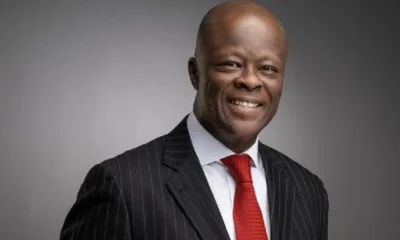

Nigerian govt denies reports it plans to borrow pension fund for infrastructure
-
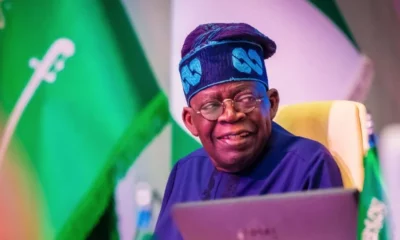

Nigerian govt to open student loan application portal May 24
-


Nigeria targets 10,000MW hydropower through sustainable power project
-


Nigeria’s inflation hits 28-year high of 33.69% in April
-


Nigeria: President Tinubu unveils 21 major initiatives
Strictly Personal
If I were put in charge of a $15m African kitty, I’d first deworm children, By Charles Onyango-Obbo
Published
5 days agoon
May 13, 2024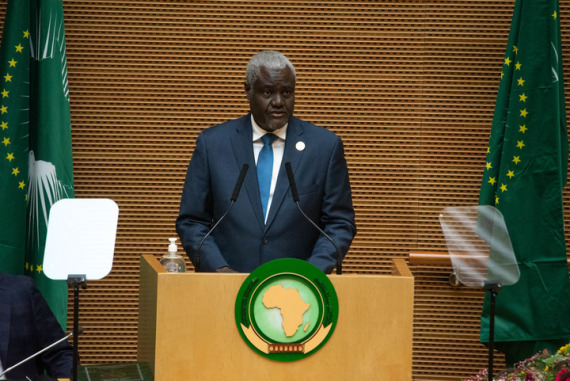
One of my favourite stories on pan-African action (or in this case inaction), one I will never tire of repeating, comes from 2002, when the discredited Organisation of African Unity, was rebranded into an ambitious, new African Union (AU).
There were many big hitters in African statehouses then. Talking of those who have had the grace to step down or leave honourably after electoral or political defeat, or have departed, in Nigeria we had Olusegun Obasanjo, a force of nature. Cerebral and studious Thabo Mbeki was chief in South Africa. In Ethiopia, the brass-knuckled and searingly intellectual Meles Zenawi ruled the roost.
In Tanzania, there was the personable and thoughtful Ben Mkapa. In Botswana, there was Festus Mogae, a leader who had a way of bringing out the best in people. In Senegal, we had Abdoulaye Wade, fresh in office, and years before he went rogue.
And those are just a few.
This club of men (there were no women at the high table) brought forth the AU. At that time, there was a lot of frustration about the portrayal of Africa in international media, we decided we must “tell our own story” to the world. The AU, therefore, decided to boost the struggling Pan-African New Agency (Pana) network.
The members were asked to write cheques or pledges for it. There were millions of dollars offered by the South Africans and Nigerians of our continent. Then, as at every party, a disruptive guest made a play. Rwanda, then still roiled by the genocide against the Tutsi of 1994, offered the least money; a few tens of thousand dollars.
There were embarrassed looks all around. Some probably thought it should just have kept is mouth shut, and not made a fool of itself with its ka-money. Kigali sat unflustered. Maybe it knew something the rest didn’t.
The meeting ended, and everyone went their merry way. Pana sat and waited for the cheques to come. The big talkers didn’t walk the talk. Hardly any came, and in the sums that were pledged. Except one. The cheque from Rwanda came in the exact amount it was promised. The smallest pledge became Pana’s biggest payday.
The joke is that it was used to pay terminal benefits for Pana staff. They would have gone home empty-pocketed.
We revive this peculiarly African moment (many a deep-pocketed African will happily contribute $300 to your wedding but not 50 cents to build a school or set up a scholarship fund), to campaign for the creation of small and beautiful African things.
It was brought on by the announcement by South Korea that it had joined the African Summit bandwagon, and is shortly hosting a South Korea-Africa Summit — like the US, China, the UK, the European Union, Japan, India, Russia, Italy, Saudi Arabia, and Turkey do.
Apart from the AU, whose summits are in danger of turning into dubious talk shops, outside of limited regional bloc events, there is no Pan-African platform that brings the continent’s leaders together.
The AU summits are not a solutions enterprise, partly because over 60 percent of its budget is funded by non-African development partners. You can’t seriously say you are going to set up a $500 million African climate crisis fund in the hope that some Europeans will put up the money.
It’s possible to reprise the Rwanda-Pana pledge episode; a convention of African leaders and important institutions on the continent for a “Small Initiatives, Big Impact Compact”. It would be a barebones summit. In the first one, leaders would come to kickstart it by investing seed money.
The rule would be that no country would be allowed to put up more than $100,000 — far, far less than it costs some presidents and their delegations to attend one day of an AU summit.
There would also be no pledges. Everyone would come with a certified cheque that cannot bounce, or hard cash in a bag. After all, some of our leaders are no strangers to travelling around with sacks from which they hand out cash like they were sweets.
If 54 states (we will exempt the Sahrawi Arab Democratic Republic for special circumstances) contribute $75,000 each, that is a good $4.05 million.
If just 200 of the bigger pan-African institutions such as the African Development Bank, Afrexim Bank, the giant companies such as MTN, Safaricom, East African Breweries, Nedbank, De Beers, Dangote, Orascom in Egypt, Attijariwafa Bank in Morocco, to name a few, each ponied up $75,000 each, that’s a cool $15 million just for the first year alone.
There will be a lot of imagination necessary to create magic out of it all, no doubt, but if I were asked to manage the project, I would immediately offer one small, beautiful thing to do.
After putting aside money for reasonable expenses to be paid at the end (a man has to eat) — which would be posted on a public website like all other expenditures — I would set out on a programme to get the most needy African children a dose of deworming tablets. Would do it all over for a couple of years.
Impact? Big. I read that people who received two to three additional years of childhood deworming experience an increase of 14 percent in consumption expenditure, 13 percent in hourly earnings, and nine percent in non-agricultural work hours.
At the next convention, I would report back, and possibly dazzle with the names, and photographs, of all the children who got the treatment. Other than the shopping opportunity, the US-Africa Summit would have nothing on that.
Charles Onyango-Obbo is a journalist, writer, and curator of the “Wall of Great Africans”. X@cobbo3
Strictly Personal
AU shouldn’t look on as outsiders treat Africa like a widow’s house, By Joachim Buwembo
Published
1 week agoon
May 9, 2024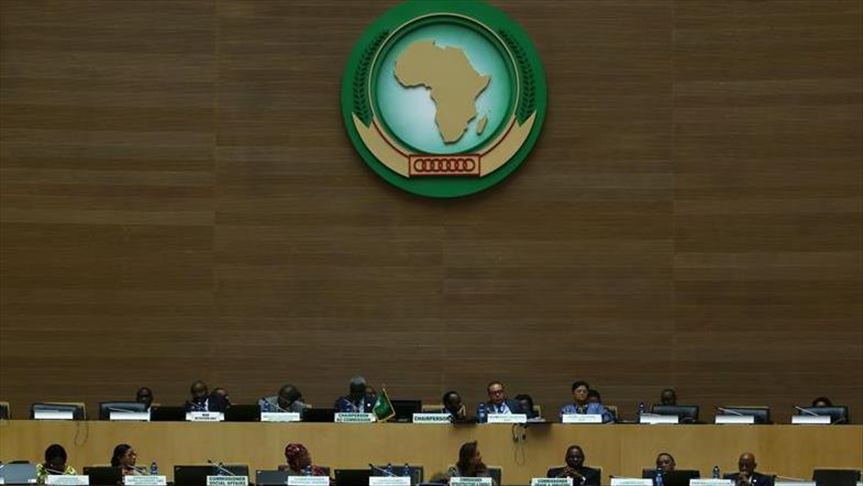
There is no shortage of news from the UK, a major former colonial master in Africa, over whose former empire the sun reputedly never set. We hope and pray that besides watching the Premier League, the managers of our economies are also monitoring the re-nationalisation of British Railways (BR).
Three decades after BR was privatised in the early to mid-nineties — around the season when Africa was hit by the privatisation fashion — there is emerging consensus by both conservative and liberal parties that it is time the major public transport system reverts to state management.
Yes, there are major services that should be rendered by the state, and the public must not be abandoned to the vagaries of purely profit-motivated capitalism. It is not enough to only argue that government is not good at doing business, because some business is government business.
Since we copied many of our systems from the British — including wigs for judges — we may as well copy the humility to accept if certain fashions don’t work.
Another piece of news from the UK, besides football, was of this conservative MP Tim Loughton, who caused a stir by getting summarily deported from Djibouti and claiming the small African country was just doing China’s bidding because he recently rubbed Beijing the wrong way.
China has dismissed the accusation as baseless, and Africa still respects China for not meddling in its politics, even as it negotiates economic partnerships. China generously co-funded the construction of Djibouti’s super modern multipurpose port.
What can African leaders learn from the Loughton Djibouti kerfuffle? The race to think for and manage Africa by outsiders is still on and attracting new players.
While China has described the Loughton accusation as lies, it shows that the accusing (and presumably informed) Britons suspect other powerful countries to be on a quest to influence African thinking and actions.
And while the new bidders for Africa’s resources are on the increase including Russia, the US, Middle Eastern newly rich states, and India, even declining powers like France, which is losing ground in West Africa, could be looking for weaker states to gain a new foothold.
My Ugandan people describe such a situation as treating a community like “like a widow’s house,” because the poor, defenceless woman is susceptible to having her door kicked open by any local bully. Yes, these small and weak countries are not insignificant and offer fertile ground for the indirect re-colonisation of the continent.
Djibouti, for example, may be small —at only 23,000square kilometres, with a population of one million doing hardly any farming, thus relying on imports for most of its food — but it is so strategically located that the African Union should look at it as precious territory that must be protected from external political influences.
It commands the southern entrance into the Red Sea, thus linking Africa to the Middle East. So if several foreign powers have military bases in Djibouti, why shouldn’t the AU, with its growing “peace kitty,” now be worth some hundreds of millions of dollars?
At a bilateral level, Ethiopia and Djibouti are doing impressively well in developing infrastructure such as the railway link, a whole 750 kilometres of it electrified. The AU should be looking at more such projects linking up the whole continent to increase internal trade with the continental market, the fastest growing in the world.
And, while at it, the AU should be resolutely pushing out fossil-fuel-based transportation the way Ethiopia is doing, without even making much noise about it. Ethiopia can be quite resolute in conceiving and implementing projects, and surely the AU, being headquartered in Addis Ababa, should be taking a leaf rather than looking on as external interests treat the continent like a Ugandan widow’s house.
Buwembo is a Kampala-based journalist. E-mail:buwembo@gmail.com
EDITOR’S PICK


Tinubu’s ‘Renewed Hope Agenda’ repositioning Nigeria as global investment hub— VP Shettima
Vice President Kashim Shettima believes the “Renewed Hope Agenda” of the President Bola Tinubu administration is gradually transformating Nigeria into...


Dubai’s cybersecurity firm CyberKnight sets up business in Africa
Dubai-based cybersecurity company, CyberKnight, has expanded its business into Africa by opening an office in Egypt. CyberKnight, a cybersecurity advisory...


Nigerian govt denies reports it plans to borrow pension fund for infrastructure
The Nigerian government has denied reports that it plans to borrow the N20tn pension fund to finance infrastructural projects. In...
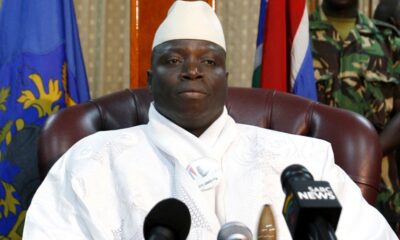

Gambian ex-minister convicted in Swiss court for crimes against humanity
In a landmark decision utilizing Europe’s universal jurisdiction, a Swiss court on Wednesday found a former Gambian government minister guilty...


Hope for persons with disability, as Muleya shares promising story of inclusivity in governance
Frederick John Muleya, a differently abled person based in Choma town, Southern Province, has shared some insights of changes being...


South Africa: President Ramaphosa signs major health bill two weeks before election
South Africa’s President Cyril Ramaphosa signed a measure into law on Wednesday that promises to offer universal health coverage, hailing...


Burna Boy, Asake, Davido, Tems, other Nigerian stars bag BET nominations
Thursday was a good day for Nigerian music stars, and especially the entertainment industry, as singers Burna Boy, Ayra Starr,...
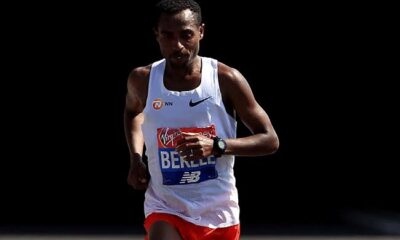

Ethiopian marathon legend Bekele returns to Olympics after 12-year absence
After a 12-year absence on the international race circuit, Ethiopian marathon legend, Kenenisa Bekele, has announced that he will return...


Nigerian govt to open student loan application portal May 24
The Nigerian government has announced that the portal for the long awaited student loan scheme will open on May 24,...


Google relaunches Hustle Academy with AI focus to empower African SMBs
Google has relaunched the 2024 cohort of its Hustle Academy, a programme dedicated to accelerating the growth of small and...
Trending
-

 VenturesNow2 days ago
VenturesNow2 days agoNigeria’s inflation hits 28-year high of 33.69% in April
-

 Metro2 days ago
Metro2 days agoNigeria targets 10,000MW hydropower through sustainable power project
-

 Musings From Abroad2 days ago
Musings From Abroad2 days agoChina’s Hailiang, Shinzoom to establish vehicle battery installations in Morocco
-

 Metro2 days ago
Metro2 days agoChurch in Kasama warns government against misusing Cyber Security Act


